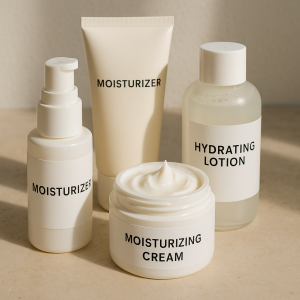 Eczema is a condition marked by dryness, itching, and inflammation. For many, managing their symptoms is an ongoing challenge. One of the most critical steps in relief and prevention is choosing the right moisturizer. However, with so many products on the shelves, it can be challenging to determine which ones actually work. Here’s a look at which ingredients in moisturizers are worth paying attention to if you have eczema.
Eczema is a condition marked by dryness, itching, and inflammation. For many, managing their symptoms is an ongoing challenge. One of the most critical steps in relief and prevention is choosing the right moisturizer. However, with so many products on the shelves, it can be challenging to determine which ones actually work. Here’s a look at which ingredients in moisturizers are worth paying attention to if you have eczema.
What Eczema Does to the Skin
Eczema damages the skin barrier, making it difficult for the skin to retain moisture and preventing irritants from entering the skin. This leads to dryness, itching, and inflammation. A good moisturizer helps repair and protect that barrier. The goal is to hydrate the skin, lock in moisture, and reduce flare-ups.
Key Ingredients That Help
- Ceramides play an important role in forming the skin’s barrier and retaining moisture. People with eczema often have a deficiency of ceramides in their skin. Adding them back with a ceramide-rich moisturizer can strengthen the skin and reduce dryness and irritation.
- Glycerin is a humectant, which means it draws water into the skin. It keeps the skin hydrated and soft. Glycerin is often combined with other moisturizing ingredients for better results.
- Hyaluronic acid is another humectant that can hold many times its weight in water. It boosts hydration without being greasy and is generally well-tolerated by sensitive skin.
- Colloidal Oatmeal has anti-inflammatory and soothing properties, protecting the skin and helping to reduce redness and itching. It’s especially useful during eczema flare-ups.
- Petrolatum (or petroleum jelly) is an occlusive ingredient that forms a barrier on the skin to prevent moisture loss. It’s highly effective, though it can feel greasy. It’s often used in ointments for severe dryness.
- Shea Butter is rich in emollients and helps soften and soothe the skin. It also has some anti-inflammatory properties.
Ingredients to Avoid
Not all ingredients are helpful. Some can make eczema worse. Avoid products with:
- Fragrance: Can irritate sensitive skin and trigger flare-ups.
- Alcohol (denatured, ethanol): Dries out the skin.
- Harsh preservatives, Like methylisothiazolinone, can cause allergic reactions.
- Essential oils: Natural, but not always gentle. Some can irritate eczema-prone skin.
How to Choose a Moisturizer
When looking for a moisturizer, consider:
- Formulation: Ointments are the most effective, followed by creams, then lotions, which are thicker and more occlusive. Lotions, on the other hand, are lighter but may not provide sufficient moisture.
- Labeling: Look for products labeled “fragrance-free,” “for sensitive skin,” or “eczema-friendly.”
- Patch testing: Apply a small amount to a small area of skin to assess the reaction before using it more widely.
Best Practices for Using Moisturizer
- Apply after bathing: Lock in moisture while the skin is still damp.
- Use regularly: Apply at least twice a day, even when your skin feels okay.
- Don’t wait for a flare-up: Keeping the skin well-moisturized can help prevent them.
When to See a Doctor
If you’re moisturizing regularly and still experiencing flare-ups, it’s advisable to consult a dermatologist. They can advise you on which stronger treatments or prescription products are tailored to your needs.
Final Thoughts
Managing eczema takes time and consistency. Moisturizers play a key role in this process. Choosing products with the right ingredients—such as ceramides, glycerin, and colloidal Oatmeal—can make a significant difference. Stay away from irritants, use your moisturizer regularly, and don’t hesitate to seek professional help if needed—small changes in your routine lead to better control and more comfortable skin.
